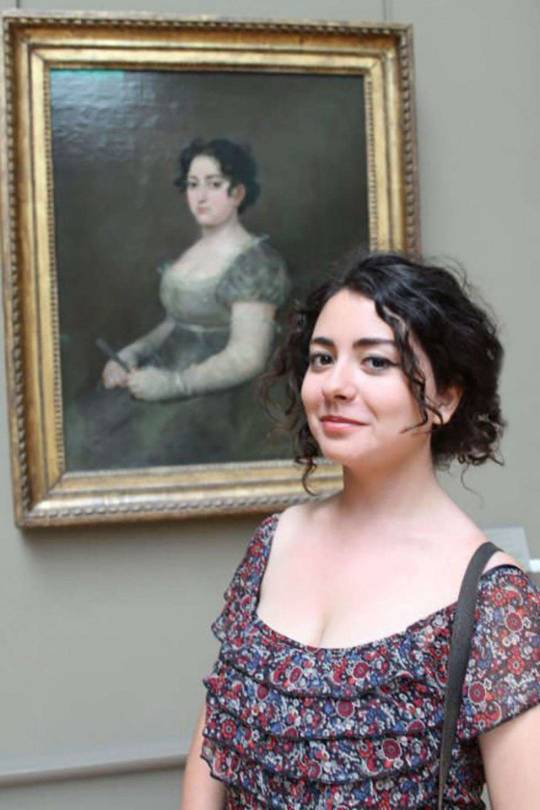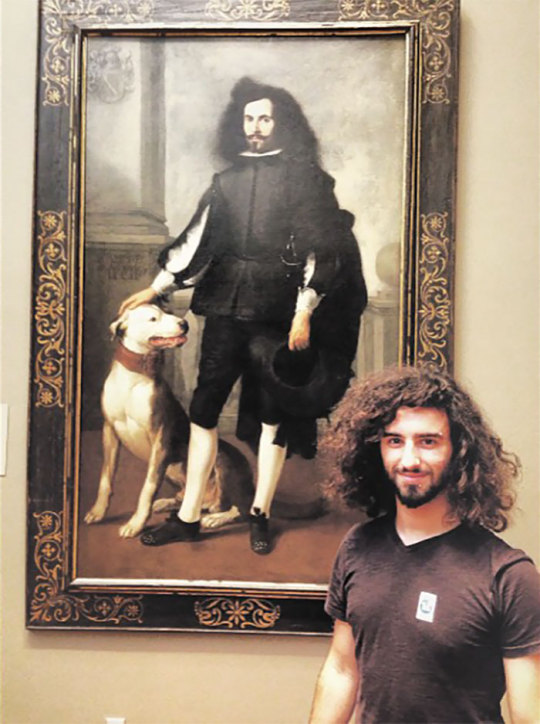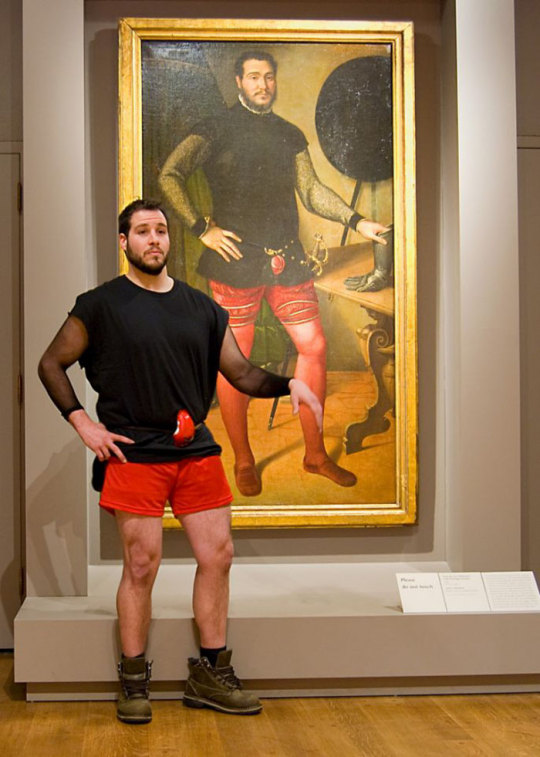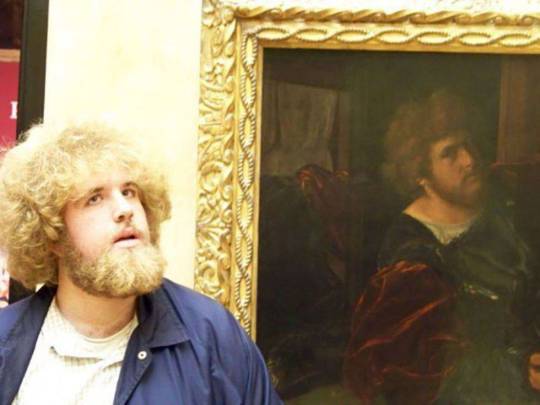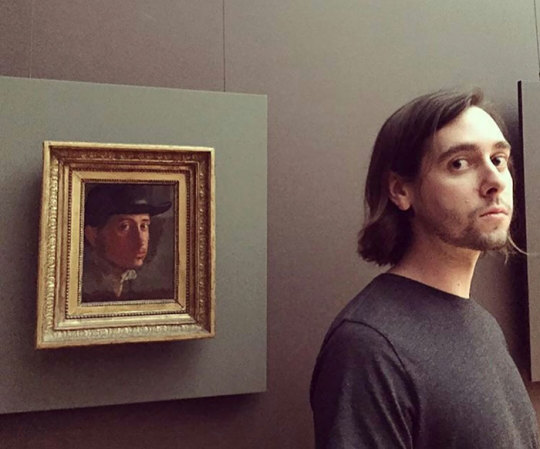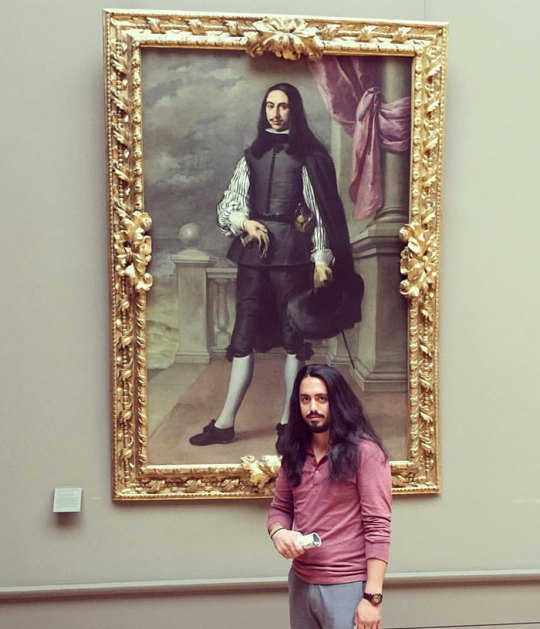Text
129 notes
·
View notes
Photo





Why All African Americans Should Go To Ghana|The Ultimate Guide for a week in Ghana
There are so many reasons why anyone of African descent should visit Ghana but here are my top 3:
To immerse yourself in a predominantly black society with black leaders and celebrated black culture
To get a glimpse what slavery was like for our ancestors and to get a deeper understanding of the trans-Atlantic slave trade that lead to the diaspora of millions of Africans
The abode act which is a law that allows African Americans to repatriate Ghana in becoming Ghanaian citizen. No other African country has allowed African Americans citizenship
Awesome Facts about Ghana
Ghana is not a popular tourist site due to the many misconceptions directed to Ghanaians. Most of what we see on TV depicts Ghana as a foreign aide dependent country with high crime rates, bad cuisine, lack of technology, poverty, disease, and corruption. THIS COULD NOT BE FURTHER FROM THE TRUTH! Let’s debunk these myths with a few fun facts about Ghana:
Ghana has recently become a middle income country with a GDP of 47 billion USD. Ghana is the first country in Sub-Saharan Africa to achieve the Millennium Development Goal 1, which is the target of halving extreme poverty.
Ghana has advance school systems and is considerably morenadvanced than many of its African neighbors.
Ghana was the first country in sub-Saharan Africa to gain independence on March 6, 1957.
The Ghana is rich in resources such as salt, diamonds, chocolate oil and gold, which is why British merchants later called it the Gold Coast.
Things to see and do in Accra…
203 notes
·
View notes
Video
17K notes
·
View notes
Text
When your friend’s going off about “nasty kinks” but they just mentioned like half of the ones you’re into:

47K notes
·
View notes
Text

When Jamaican Pan-African icon Marcus Garvey was a student in London, he found a mentor in one of Africa’s actors and political activists called Dusé Mohamed Ali.
Born on this day in 1866, Ali was the son of an Egyptian father and a Sudanese mother. He was born in Alexandria, where he was trained until he was 10 when his dad started arranging to transfer him to England.
He would stay in England until 1882 when his father, an officer in the Egyptian Army, was killed in the Battle of Tel el-Kebir, between Egypt and the British military. He was 16 at this time and had to handle his father’s estate affairs as the family had been evacuated to Sudan. He then headed back to King’s College London.
Although he had wanted to be a doctor, Ali changed his course in school to study the arts. He took to the stage at 19 years old and would act for the next 24 years. However, the resentment started creeping in because of the tendency of being type-casted into stereotypical roles either as an evil Muslim or a slave because of his dark skin. This was despite the fact that he was the only English-speaking actor from the Arab world in English theatres at the time.
He took a detour in his career and became a journalist, thanks to his interest in politics. Some of his articles focused on the treatment of Egyptians by the British. He would travel the world in search of warm climate due to ill health, visiting countries like India, the U.S. and the Caribbean. During his voyages, he was able to see the impact of imperialism on black people and Arabs and made his mission to challenge this.
In 1912, he founded the first newspaper in England owned and published by a black person: African Times and Orient Review. The fund used in launching the paper was provided by West Africans living in London. The newspaper became famous for its Pan-African take and attracted the likes of the cousin of the first African-born president of Liberia, Irish writers and British explorers. Even women rights activists sent contributions to the newspaper.
It was through the newspaper that he established relationships with other black intellectuals throughout the world, including Booker T Washington and Alain Locke. He was able to meet Garvey and even joined his United Negro Improvement Association (UNIA) as a foreign secretary and head of African affairs.
The newspaper folded during World War I as it was banned by the British in India and in all its African colonies. Ali moved to the U.S. in the 1920s but after a series of failed businesses, he came back to the continent, settling in Nigeria.
He founded The Comet, a magazine which was ranked among top Nigerian publications at the time. In 1944, he would sell the magazine to a publication house owned by Nnamdi Azikiwe, the man who would become Nigeria’s first president.
Ali, who had written a number of books and staged a number of plays throughout his life, died on June 25, 1945.
https://face2faceafrica.com/article/the-little-known-sudanese-egyptian-pan-africanist-who-mentored-marcus-garvey?fbclid=IwAR3e5CDmtvrACkWPrXyzRh3hg5eAS1R9VQIMqIumierw1wfJFbnIe6rvHqo
55 notes
·
View notes
Text


Kenya Shuts Globalist Abortion clinics! #MarieStopes #AFRIC
https://www.youtube.com/watch?v=FXJtAljdyks&t=581s
17 notes
·
View notes
Text
Varieties of Spirit Mediums

Spirit mediums play a very important role in Spiritism as a way of communicating vital information between the world of spirits and the world of mortals. The spirit medium, according to Allan Kardec, holds a specialized position, but it is ultimately open to anyone who is willing to learn and grow. Some mediums have a natural capacity for this kind of work, just like a musician might have a knack for playing a certain instrument, but the doors of mediumship are open to all people. In The Mediums’ Book Kardec lists a variety of different specialized mediums based upon how they interact with spirits and the means by which they might communicate these otherworldly messages. Kardec says that this list, along with the spiritual hierarchy, are the two most important charts that all Spiritists, mediums or not, should be familiar with. We will get into the importance of this list at a later time when we talk more about the role and work of the medium, but for now I’d just like to present the chart as Kardec did in The Mediums’ Book, as a way of showing the variety of practices mediums can have.
Firstly, mediums as a whole can be divided into two groups:
Physical mediums; those who have the power of obtaining physical manifestations.
Intellectual mediums; those who are more especially apt for receiving and transmitting intelligent communications.
There are also certain qualities common to all of the various orders of mediums:
Sensitive mediums; persons who feel the presence of spirits by a peculiar impression, general or local, vague or decided. Most of these distinguish good or evil spirits by the nature of the impression caused by them.
Natural or unconscious mediums; those who call forth the phenomena spontaneously, without any action of their will, and for the most part unconsciously.
Voluntary mediums; those who have the power of calling forth the phenomena by an act of their will.
Next Kardec begins talking about the variety of physical mediums that he had encountered. Note, there are so many other ways than just these. In my experience, there are as many techniques as there are mediums. But this is a really good place to start. Also note, Kardec includes in his descriptions how rare it was to find certain types of mediums. At one time this was very helpful in determining the likelihood that a medium was a fraud.
Special Varieties of Physical Mediums:
Rapping mediums; those by whose influence noises and raps are produced. A very common variety of medianimity, whether voluntary or involuntary.
Motor mediums; those who produce the movement of inert bodies. These, also, are very common.
Mediums for displacements and suspensions; those who obtain the displacement of inert bodies, and their suspension in the air without any visible prop. There are some who are thus raised themselves, but these are very rare.
Mediums for musical effects; these obtain the playing of certain instruments without human contact. Also very rare.
Mediums for apparitions; those who obtain apparitions, whether fluidic or tangible, which are visible to lookers on. Very exceptional.
Mediums for the transport of objects; those who are employed by spirits as auxiliaries in bringing objects to a circle. Exceptional.
Nocturnal mediums; those who only obtain certain physical effects in the dark.
Healing mediums; those who have the power of curing disease or relieving pain, by the imposition of hands or by prayer.
Developing mediums; persons who, by their influence, have the power of developing the faculties of medianimity in others.
Special Varieties of Intellectual Mediums:
Hearing mediums; those who hear spirits. Very common.
Speaking mediums; those who speak under the influence of spirits. These are very common.
Seeing mediums; those who see spirits when awake. An accidental and fortuitous sight of a spirit under some peculiar circumstances is very frequent; but the habitual view of spirits at will, and without distinction, is exceptional.
Inspirational mediums; those to whom thoughts are suggested by spirits, most frequently without their being aware of it; whether in regard to the things of their everyday life, or to their intellectual labours.
Presentient mediums; persons, who, under certain circumstances, have a vague intuition of future events in the domain of ordinary life.
Prophetic mediums; these are a variety of the inspired mediums, or of presentient mediums; they receive, by God’s permission, and with more precision than do the presentient mediums, the pre-announcement of future things of general interest, which they are charged to predict for the enlightenment of mankind.
Somnambulist mediums; those who, when in a somnambulic state, are assisted by spirits.
Trance mediums; those who receive revelations from spirits when in a state of trance.
Painting and Drawing mediums; those who paint and draw under the influence of spirits. We are speaking of those whose mechanically-produced works are worthy of attention, for we cannot apply this designation to mediums who, under the influence of mocking spirits, obtain absurd productions that would disgrace the merest schoolboy.
Musical mediums; those who execute, compose, or write music, under the influence of spirits. They are mechanical, semi-mechanical, intuitive, and inspired; as are the mediums for literary communications.
Special Varieties of Writing Mediums:
First Division – According to the Mode of Execution
Psychographic mediums; those who have the faculty of writing under spirit influence.
Mechanical writing mediums; those whose hands are acted upon by an involuntary impulse, and who are unconscious of what they write. Very rare.
Semi-mechanical mediums; those whose hands are made to write involuntarily, but who are conscious of the words or the phrases thus written by them. These are the commonest of all.
Intuitive mediums; those with whose thought the spirit communicates, but whose hands are guided by their own will. They differ from inspirational mediums inasmuch as the latter do not necessarily write, while the intuitive writing medium writes the thought which is suggested to him at the moment, on some subject previously determined upon.
Polygraphic mediums; those whose writing changes with the spirit who communicates, or who reproduce the handwriting of the spirit when in the flesh. The first of these are very common; but those who obtain the reproduction of the handwriting are much less so.
Polyglot mediums; those who have the faculty of speaking or writing in languages that are unknown to them. These are very rare.
Illiterate mediums; those who write, as mediums, without knowing how to read or write in their ordinary state.
Second Division – According to the Development of the Medianimic Faculty
Novice mediums; those whose medianimic faculty is not yet completely developed, and who lack experience.
Unproductive mediums; those who obtain only insignificant results, such as monosyllables, letters, or mere strokes.
Fully formed mediums; they whose medianimic faculties are completely developed, and who transmit spirit-communications easily, quickly, and without hesitation. It is evident that this perfection cannot be obtained without practice; in the case of novice mediums, the transmission is usually slow and difficult.
Laconic mediums; those who, though easily influenced, obtain only short and undeveloped communications.
Explicit mediums; the communications obtained by these mediums have all the length and amplitude that could be arrived at by a writer of first rate ability.
Experienced mediums; facility of writing, drawing, etc., is a result of habit, and is often quickly acquired; while experience is the result of a serious study of all the difficulties of practical spiritism. Experience gives to the medium the tact necessary for judging of the quality of the spirits who manifest themselves, ascertaining their good or bad qualities, and discovering the tricks of deceptive spirits who falsely assume the appearances of truth. The importance of this quality is easily understood, for, without it, all others are useless. Unfortunately, many mediums confound experience, the fruit of study, with aptitude, the result of organisation, and fancy themselves to be perfect, because they write with facility; they often reject counsel, and become the prey of hypocritical and lying spirits, who lay hold of them by flattering their vanity.
Flexible mediums; those whose faculty enables them to lend themselves with great facility to a great diversity of communications, and through whom, all spirits, or nearly all, are able to manifest themselves, spontaneously, or in response to evocation.
Exclusive mediums; those through whom one spirit manifests himself to the exclusion of all others, and answers for all the other spirits that may be called for through the intervention of the medium.
Mediums for evocations; flexible mediums are naturally the fittest for obtaining this kind of manifestation, and for queries of detail that may be addressed to spirits.
Mediums who receive spontaneous communications; they are used for the transmission of information spontaneously given by spirits who come without having been evoked. It is always difficult, and often impossible, to make the evocation of any given spirit through mediums in whom this aptitude exists as a special faculty.
Third Division – According to the Kind and the Specialty of Communications
Verse-making mediums; those who most easily obtain communications in verse. Inferior rhyming is common with mediums of this class; but good poetry, extremely rare.
Poetic mediums; without obtaining verse, these mediums usually get vaporous and sentimental communications. Such mediums are specially fitted to convey tender and affectionate messages. They are often, however, rather vague, and it would be useless to seek any definite instructions from them. This sort of mediumship is very common.
Positive mediums; their communications have usually all the clearness and precision required for the transmission of circumstantial details and exact information. Mediums of this class are rare.
Literary mediums; they have neither the vagueness of poetic mediums, nor the dryness of positive mediums. Their dissertations show sagacity; their style, always correct and elegant, is sometimes remarkable for its eloquence.
Incorrect mediums; they sometimes obtain sensible and moral communications, but their style is diffuse, ungrammatical, and loaded with repetitions and ill-assorted terms.
Historical mediums; those who have a special aptitude for treating of historical subjects. This faculty, like all the others, is independent of the medium’s knowledge; for ignorant persons, and even children, are often made to treat medianimically of subjects far beyond their natural grasp. This is a very rare variety of the positive medium.
Scientific mediums; these, even though very ignorant, are especially adapted for obtaining communications relating to scientific subjects.
Medical mediums; their specialty is to act with greater facility than others, as interpreters of spirits for medical prescriptions. We must not confound these with healing mediums, for they do nothing more than transmit the spirit’s thought, and possess no curative influence whatever. They are frequently met with.
Religious mediums; they usually receive communications of a religious character, and are employed by spirits to treat on religious questions, sometimes in opposition to their own beliefs and mode of worship.
Philosophic and moralistic mediums; the communications of this class of mediums have generally moral and philosophical questions for their object. Mediums who treat of morality are especially numerous.
Mediums for trivial and obscene communications; this qualification sufficiently indicates the sort of communications which certain mediums habitually receive, as well as the nature of the spirits who control them. Whoever has studied the various ascensional degrees of the spirit-world is aware that there are spirits whose perversity equals that of the vilest of men, and who delight in expressing their thoughts in the coarsest language. Others, less abject, content themselves with communicating absurdities. We can well understand that mediums should wish to be delivered from so undesirable a preference, and that they should envy those who, in the communications they receive, are never troubled with unseemly words. Only through a strange aberration of mind, and an utter want of common sense, could such language be supposed to proceed from good spirits.
Fourth Division – According to the Physical Qualities of the Medium
Calm mediums; these always write slowly, and without showing the slightest agitation.
Rapid mediums; these write with greater rapidity than they could do, voluntarily, and in their ordinary state. Spirits communicate through them with the swiftness of lightning; there would seem to be in them a superabundance of fluid, enabling spirits to identify themselves instantaneously with their organism. The rapidity with which these mediums write has sometimes the inconvenience of rendering their writing very difficult to read for any but the medium himself.
Convulsive mediums; they become excited almost to feverishness; their hand, and sometimes their whole person, is agitated with tremblings which they are unable to control. Much of this excitement may doubtless be attributable to their organisation ; but it also depends, to a considerable degree, on the nature of the spirits who communicate through them. Good and kindly spirits always produce a gentle and agreeable impression; the bad, on the contrary, excite a painful one.
Fifth Division – According to the Moral Qualities of the Medium
Bad Qualities:
Mediums who are obsessed; those who cannot rid themselves of importunate, deceptive spirits, but who are fully aware of, and regret, this obsession.
Fascinated mediums; those who are acted upon by deceptive spirits, but who are not aware of this obsession, and who are consequently under a delusion as to the nature of the communications they receive.
Subjugated mediums; those who are under the moral, and sometimes the physical, domination of evil spirits.
Frivolous mediums; those who do not regard their faculty in a serious light, and who exercise it only for amusement or for futile objects.
Careless mediums; those who derive no moral profit from the instructions which they receive, and whose conduct and habits are not improved thereby.
Presumptuous mediums; those who assume themselves to be the only ones who are in communication with superior spirits. They believe themselves to be infallible, and regard as worthless and erroneous whatever does not come through themselves.
Proud mediums; those who feed their vanity with the communications which they receive, imagine themselves to have nothing more to learn in regard to spiritism, and do not apply to themselves the lessons often read to them by spirits. Not contented with the medianimic faculties they possess, they imagine themselves to possess all the others.
Touchy mediums; they are a variety of the proud ones, and are hurt at the criticisms of which they are the object; they take offence at the slightest contradiction, and, if they show what they obtain, they do so in order to be admired, and not at all to profit by the opinion of the listeners. They generally take an aversion to those who do not applaud them unreservedly, and desert the meetings in which they cannot take a leading part.
Mercenary mediums; those who make their faculty a source of pecuniary gain.
Ambitious mediums; those who, without putting a price upon the exercise of their faculty, seek to turn it to their own advantage, social, or other.
Dishonest mediums; those who, possessing some genuine medianimic faculties, simulate others which they do not possess, in order to give themselves importance.
Selfish mediums; those who use their faculty only for personal ends, and who keep to themselves the communications they receive.
Jealous mediums; those who are vexed at seeing other mediums better developed, and more highly appreciated, than themselves.
Good Qualities:
Serious mediums; those who only use their faculties for good and really useful ends, and who would regard it as a profanation to use them for the satisfaction of the curious and indifferent, or for any futile purpose.
Modest mediums; those who make no merit of the communications they receive, however good they may be they look upon themselves as being only the instruments of others, and do not regard themselves as infallible. Far from shunning disinterested counsel, in regard to the exercise of their medianimity, they seek it.
Devoted mediums; those who understand that the true medium has a mission to fulfill, and that he must be ready, when necessary, to sacrifice his tastes, habits, pleasure, time, and even his worldly interests, to the good of others.
Safe mediums; those who, in addition to their power, are worthy of confidence on account of their personal excellence and the elevated nature of the spirits who assist them, and who are thus the least likely to be deceived. We shall see hereafter that this security does not depend in any way upon the honourability of the names assumed by the communicating spirits.
2K notes
·
View notes















